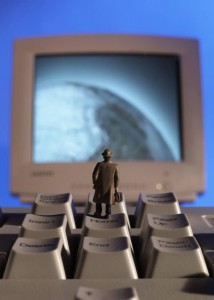Part of the Professional Development Series by Laura Lee Rose
 As computer experts, we all recognize the importance of regular computer maintenance. We regularly backup, run a disk cleanup, schedule automatic maintenance diagnostics and remove/uninstall obsolete programs and application. We also regularly perform defragment for optimal computer performance.
As computer experts, we all recognize the importance of regular computer maintenance. We regularly backup, run a disk cleanup, schedule automatic maintenance diagnostics and remove/uninstall obsolete programs and application. We also regularly perform defragment for optimal computer performance.
Wouldn’t it be nice to value our manual performance just as much as our computers’ operation? Below are some simple steps to keep our career running smoothly.
Regular backups:
1) Keep a folder of all your business accomplishments: client recognitions, thank you notes from other managers, accommodations from your managers or executives.
2) Keep a log ‘as you go’ of everything that you have accomplished in this performance period. This will make your yearly review paperwork simple
3) If you haven’t collected ‘thank-you’ notes in the past, start now. Also, if someone is telling you how much they value your assistance or work on their behalf , get into the practice of asking people to write you a note of thanks and copy your manager. People are happy to do this. The only reason they don’t, is because it doesn’t occur to them
4) Start writing ‘thank you’ notes to co-workers that you appreciate and copy their managers. They will naturally reciprocate.
Frequently Scheduled Diagnostics:
1) Don’t wait until your yearly performance review to discover how your performance compares to your management’s expectations. Schedule frequent and regular peer and management review of your performance
2) Lead the discussion in what you feel your strengths are, where you see your value to the company lie, what direction you want your career to take, and who you want to eventually work with. Utilize these critical and unofficial discussions to clue your management line to what you want your eventual role to be. This allows them to continually be on the lookout for appropriate opportunities.
3) In these periodic unofficial review meetings, ask peers and managers what they feel are your strengths. Have frank discussions regarding your gaps and requests in-house mentor recommendations.
4) Have these unofficial diagnostics done long before your regularly scheduled performance inspections, so that you have your gaps filled long ahead of time.
Removing obsolete programs and applications:
1) Review every task that takes your time. Should you really be doing this? Or have you outgrown this particular duty?
2) Consider handing-off, deleting or combining it with another more relevant role.
3) Is there another, more optimal and efficient way to accomplish the essence of that goal?
4) Just like uninstalling obsolete programs from our hard drive, removing these items will give you more space and time for more relevant activities and projects that are more in lined with your current goals.
Defragmentation
Just like our computers, we work better when we have continuous space to complete our work. And like our computers, many of our days become fragmented with interruptions, previously scheduled meetings that have been postponed or modified, or badly estimated projects and meetings. To be out our most effective, we need to regularly defragment our work day.
1) Take control of your calendar. Block out contiguous space and time on your calendar for dedicated work
2) Post either your office hours (available for interruptions) or your do-not-disturb times. Most people will respect those requests. You just need to make them known.
3) Set a block of time to review your email (and voice mail) versus whenever they come in.
4) Just because something is happening ‘now’ does not make it urgent. Use the Do-Not-Disturb features on your phone, chat-lines, instant messages, etc. Allow people to leave a phone message.
5) Combine activities. Don’t have time to exercise during work, bring toning weights and flex/stretch during one-way conference calls. Brainstorm with a colleague while you are walking the campus track or office building. Take those needed breaks via networking and building those important working relationships.
Conclusion: Let’s keep our ‘people’ skills as well-maintained as our computer with constant forethought, attention and care. We’ll replace our computers every few year (not so with ourselves).
If you are interested in more detail professional coaching or a professional coach to help you stay on target with those goals, please consider one-on-one coaching sessions to propel you forward faster.
